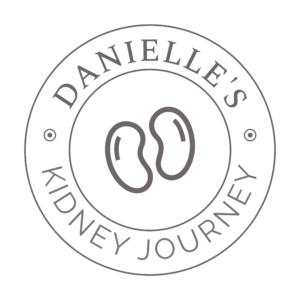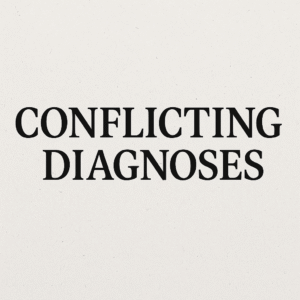Conflicting Diagnoses
Hi Everyone,
The last two weeks have felt like a spinning roller coaster of perplexing news — rotating endlessly, leaving me dizzy.
My native kidneys are now functioning at about 20%, so I’m trying to protect them. But because my transplanted kidney remains in my body, I have to take medication to prevent antibodies from developing — and that’s harming my remaining kidney function. All the medical professionals I’ve met agree the transplanted kidney needs to come out, so we’re aiming for surgery in August or September.
I’m disappointed to face another surgery, another recovery, and more time when I won’t be able to hold and cuddle with Barney the way I want to. But on the upside, once the surgery is done, I’ll be able to stop taking immunosuppressants — which means I can finally be around Barney without wearing a mask.
Meanwhile, I’m beginning the evaluation process at several transplant centers. I may not need a transplant right away, but we’re preparing in case my kidney function declines — and I’m hoping to avoid dialysis.
At the same time, I’m still meeting with specialists — and the search for answers continues to be confusing. I recently met with a nephrologist at Johns Hopkins who specializes in aHUS. While the hematologist I saw at Georgetown believed I had the disease, this specialist disagrees. He doesn’t think I meet the criteria for aHUS and believes what happened during Barney’s birth was a rare obstetrical catastrophe. He also thinks my recent transplant rejection was actually my body’s response to a virus I contracted.
I’m still meeting with more specialists to decide what team I want to work with and hoping for a clearer path forward.
While I’m relieved at the possibility that I may not have aHUS — a disease I don’t want to have — I have to admit, I feel like crying most days. I’m overwhelmed, confused, and longing for some ease, some certainty. How do I protect my health and prevent serious complications as I move forward?
I want to choose a team I can trust to handle my medical care and guide me forward — and if I do have aHUS, that team needs to specialize in it. But I don’t have enough information yet to make that decision. So I’m still in the gathering phase — and it’s uncomfortable not knowing what lies ahead.
As I wait for clarity, I’m grateful my native kidneys are still working well enough to keep me off dialysis. But I’m constantly tired and never feel fully rested. The buildup of toxins affects my nervous system, leaving me both restless and drained.
When I had my transplant, I felt better than I had in a long time. That burst of energy was like a tease. But the medication protocol that gave me that boost can’t be used again because of the virus I contracted. If I get another transplant, I’ll likely need a different protocol — one that previously caused debilitating migraines. I might be able to return to the original regimen eventually, but it would take time. I’m grieving the loss of that window where I felt like myself again — and the treatment that made it possible.
More than anything, I long for ease. I want to do an activity — and still have energy afterward. But right now, if I go to a doctor’s appointment, take Barney out for a walk, or even just do something light, I end up spending the rest of the day recovering.
I constantly feel like I’m making energy tradeoffs. Taking a morning walk means I probably won’t write later. An outing means I won’t have the energy to play with Barney. I’m always bargaining: If I do this, I can’t do that.
Lately, I’ve had more moments of accepting this reality. But new information, conflicting diagnoses, and ongoing tradeoffs keep pulling me back into uncertainty — and that makes accepting my energy limitations even harder. I’ve realized how easy it is to conflate different kinds of pain: the mental strain of the unknown and the physical exhaustion of getting through each day. They blur together until it’s hard to tell what hurts more — the physical limitations themselves, or the constant effort I need to navigate them.
And the wildest part is — it will probably all change again. I keep wondering: “When can I get off this ride?” “When will there be some ease, some certainty?”
One thing that helps is writing to you. It doesn’t fix things, but it gives me an outlet to process — and a way to feel your love and support. Your messages, check-ins, and cards mean more than I can say. They remind me I’m not alone in this.
In the meantime, I sit with all of this and thank you for walking alongside me.
Love,
Danielle
Interested in becoming a living kidney donor? Learn more through DOVE, a nonprofit supporting veterans in need.



